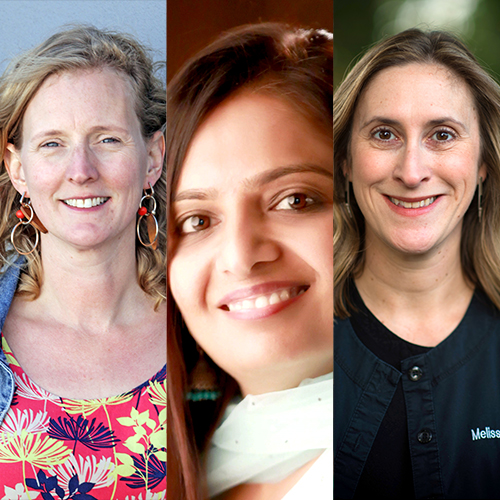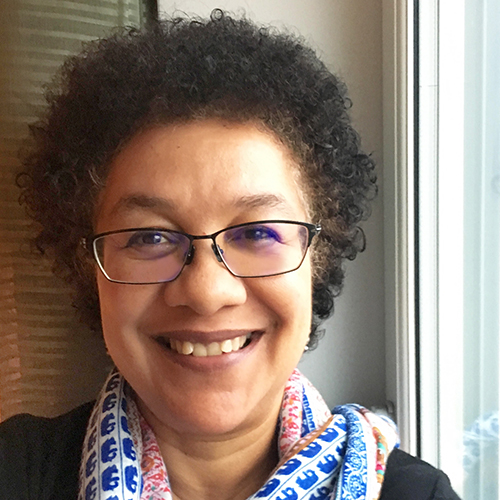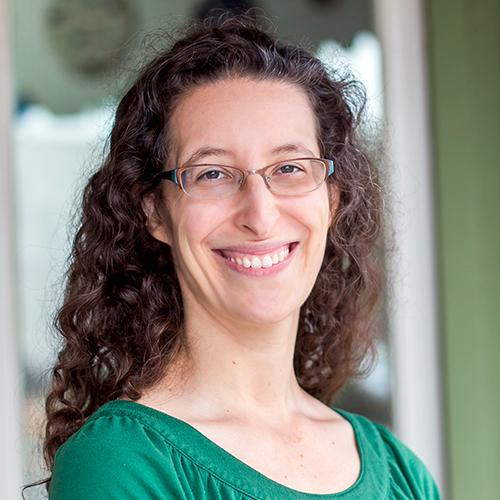 IBCLC / Lactation Consultants Online Course(s) & Continuing Education
IBCLC / Lactation Consultants Online Course(s) & Continuing Education
Access the latest clinical skills and research for IBCLC/Lactation Consultants for Tongue-tie, Lip Tie & Structure professional training. These IBCLC/Lactation Consultants online courses provide practice-changing skills and valuable perspectives from leading global experts. This IBCLC/Lactation Consultants education has been accredited for a variety of CEUs / CERPs and can be accessed on-demand, at your own pace.

Enhanced Counseling Skills for the Lactation Educator

Christy Jo has over 25 years of teaching experience. She is passionate about teaching in ways that simplify learning. She has been awarded the United States Presidential Volunteer Award for her community service, the Phyllis Klaus Founder's Award for her contribution to the Mother/Baby bond and the Above and Beyond Award for innovative projects that exemplify the mission of Public Health. She has also been named Lactation Educator Faculty of the Year from Childbirth and Postpartum Professionals Association and earned their Visionary Award in 2015. Christy Jo is the author of Mommy Feeds Baby and co-author of Making Milk. She created the Grow Our Own Lactation Consultant/IBCLC Prep Course which has been used to train hundreds of students to become Lactation Consultants. She currently resides in California with her husband and three children. She continues to serve her community as a birth doula, Private Practice IBCLC, Health Educator for Public Health, and faculty for the CAPPA CLE© and Childbirth Educator Programs.
Topic: Enhanced Counseling Skills for the Lactation Educator - [View Abstract]
Topic: Expanding Our Audience to Gain Greater Appreciation and Acceptance of Breastfeeding - [View Abstract]
Topic: Sharing Your Wisdom: From Abstract Idea to Awesome Prenatal Breastfeeding Class - [View Abstract]
Topic: The Art of Communication: Simplifying Birth and Breastfeeding - [View Abstract]
Functioning in the role of a lactation educator, one must be equipped with the tools for effective communication.
This topic explores the many ways to communicate successfully with prenatal and postpartum individuals. The talk highlights open-ended questions, affirmations, education and the anticipated results of three-step counseling. The presentation also explains how to recognize “change talk” and what words may signal an “open door” to further opportunities for sharing. Circle Charts and Participant Centered Education are discussed in detail. This talks prepares the counselor to share information in an open-minded, non-judgmental way that results in profitable teaching and learning for the counselor and perinatal person. These skills are presented in a fun, unique way and provide more tools for the lactation educator’s tool box.
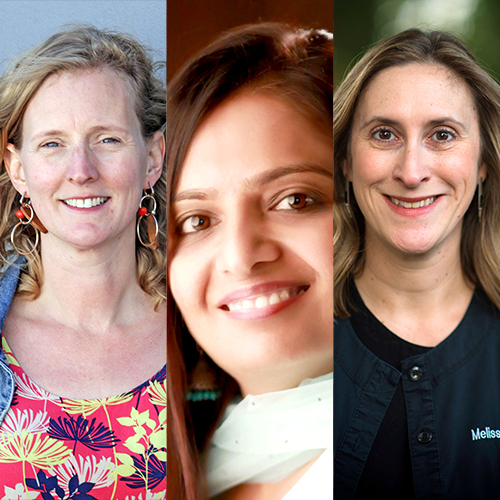

Melissa Cole is a board-certified lactation consultant, neonatal oral-motor assessment professional and clinical herbalist in private practice. Melissa is passionate about providing comprehensive, holistic lactation support and improving the level of clinical lactation skills for health professional. She enjoys teaching, researching and writing about wellness and lactation-related topics. Her bachelor’s degree is in maternal/child health and lactation and her master’s degree is in therapeutic herbalism. Before pursuing her current path, Melissa’s background was in education and cultural arts, which has served her well in her work as a lactation consultant and healthcare educator. She loves living, working and playing in the beautiful Pacific Northwest with her 3 children.
Anna Le Grange is an International Board Certified Lactation Consultant, Registered Paediatric Nurse, Mindfulness teacher and Author. She has worked with new families for over 20 years in a variety of clinical roles. Anna brings her passion for psychology, neuroscience and mindfulness into her lactation support work and facilitates other professionals to incorporate emotional well-being tools into their own lactation practice.
Mother to 3 children, Anna breastfed her 3rd child following breast reduction surgery and experienced first-hand, the emotional challenges that so often relate to infant feeding complexities. She used her personal experiences alongside mindfulness and lactation knowledge, to create a toolbox of techniques for breastfeeding families, which she includes in her courses and book, The Mindful Breastfeeding Book. Anna believes whole-heartedly in prioritising calm and connection within our breastfeeding support practices, both for our clients and ourselves.
Anna is currently studying for a MSc in Positive Psychology at Buckingham New University and has spoken at various events including the ILactation conference and Womanfest.
Dipti Shah is a Mother Support Group Leader - Lactation Counsellor since 1998 & Lactation Consultant since 2010. She was trained by BPNI Maharashtra Faculty & has been providing Lactation Counselling services in multiple Institutional Hospitals & small maternity homes in Mumbai for over 2 decades. She has wide experience in community advocacy & Individual Counselling in indoor, OPD, home and online settings. She is senior trainer for BPNI Maharashtra & participated as faculty in over 100 workshops in Seven States of India & for 5 batches of ’96 hrs of Lactation Specific Education’ for IBLCE preparation (2010-2021). She mentored many Lactation counsellors and consultants. She is a BFHI Assessor since 2001 & has trained two groups of ‘Traditional Massage Women’ in basics of infant feeding and childcare. She has extensively contributed to multiple training modules, presentations & videos for BPNI Maharashtra & Maharashtra Government & UNICEF. She is also office coordinator of BPNI Maharashtra since 2004. She participated in Expanded Global Breastfeeding Partners Meeting (GBPM) of WABA at Penang, Malaysia in 2010. She was felicitated with ‘Dr N.B. Kumta Award’ in 2016. She exclusively breastfed her son for 6 months and continued well into 2nd year.
The care of breast/chestfeeding dyads is not always straightforward. With the potential for postpartum medical concerns in parent or baby, the potential for a parent needing mental health support and the possibility of a baby needing a type of feeding support that falls outside of the scope of practice or experience of a lactation professional, it’s important for care provides to know when to refer, how to navigate barriers to referral and how to work collaboratively with other care providers once a referral has been made. Our panel of expert speakers will be sharing their clinical knowledge and experience to address these issues and help lactation professionals with the practicalities of making referrals and working collaboratively to ensure optimal outcomes for their clients.
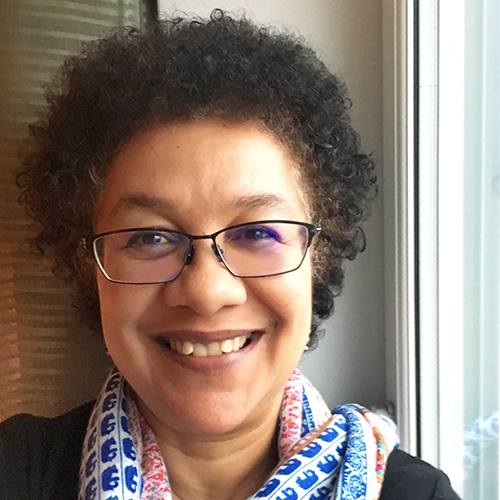
Global Perspectives on the Warm Chain of Support for Breastfeeding

Dr. Amal Omer-Salim is the Executive Director of the World Alliance for Breastfeeding Action (WABA). She is a nutritionist with a Ph.D. from Uppsala University, Sweden. Her areas of expertise are nutrition, breastfeeding, international health, gender, programme planning, research, and advocacy, with a special focus on Africa and Asia.
Global trends in breastfeeding rates only show modest increases between 2000 and 2015. Currently, about 40% of babies below 6 months are exclusively breastfed and several barriers on the structural, setting, and individual levels exist. Continuous support for mothers across the 1000 days from conception has been shown to be effective in increasing the duration and exclusivity of breastfeeding. WABA’s Warm Chain campaign places the mother-baby dyad at the core and strives to link different actors by coordinating efforts at all levels to provide a continuum of care during the first 1000 days. The warm chain needs to be protected, promoted, and supported. Protection includes implementation and monitoring of the International Code of Marketing of Breastmilk Substitutes as well as coordination to ensure that all the linkages in the chain are working well. Promotion entails providing information about the roles and responsibilities of each actor along the timeline. Support includes increasing knowledge, skills, and competencies of multi-professional teams in order to provide optimal support for breastfeeding. Achieving a warm chain of support for breastfeeding will help increase breastfeeding rates, thus ensuring improved survival, health, and well being. The short and long-term positive effects impact individuals, societies, and the planet.

View Details / Enroll
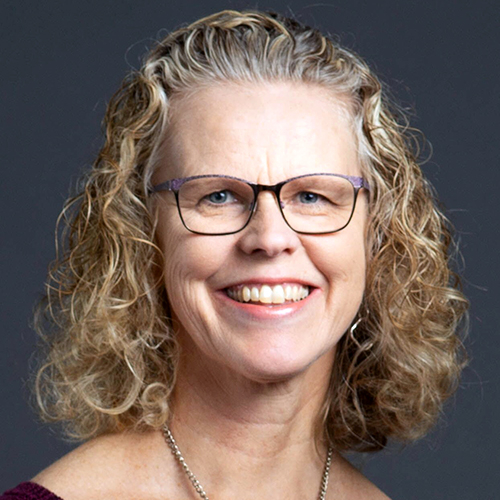
Informed Decision Making: Gaining Skills & Confidence with Tricky Conversations

For over 25 years Sonya Boersma has supported best practice, working with mothers and babies, as well as professionals. She delivers a calm and informative consult to a diversity of clients and situations. For her it's an honour to work with new, new-again, or soon-to-be parents, tailoring care to each.
Sonya also has a broad range of experiences supporting health care professionals to provide infant feeding evidence-based care. She has been instrumental in developing resources regionally and provincially. As a provincial Health Promotion Consultant, Sonya assisted health care organizations like hospitals to progress in implementing the WHO's Baby-Friendly Initiative. She was the coordinator of provincial breastfeeding protocols, including Informed Decision Making: Infant Feeding and facilitated IDM and other workshops around the province for a variety of health care professionals.
As an IBCLC and Registered Nurse in various roles such as public health, northern nursing in Yukon Territory, Canada, as a birth doula, and as an independent Lactation Consultant, she has been fortunate to work with parents in the whole childbirth continuum.
In her spare time, she's likely outside hiking, cycling, or cross-country skiing or being with family.
It can be tricky when as health professionals, we want to build trust and support our client, and at the same time, presenting evidence-based information on infant feeding can be uncomfortable.
The purpose of this presentation is to enhance awareness, augment skills and comfort in having informed decision making (IDM) conversations, so participants can more confidently engage with their clients.
In this presentation we will review scenarios where IDM conversations are needed, explore language to begin, and discuss tips on engaging your client. We will also refresh knowledge of the risks of not breastfeeding/chestfeeding, as well as differences between direct breastfeeding versus feeding expressed breast milk. Further, we will discuss communication strategies using practical examples and provide participants with supporting resources including sample videos so that participants may confidently have conversations with clients about infant feeding that generate informed decision making.
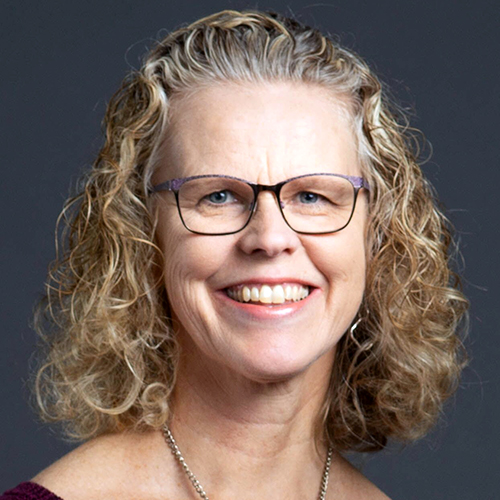
View Details / Enroll
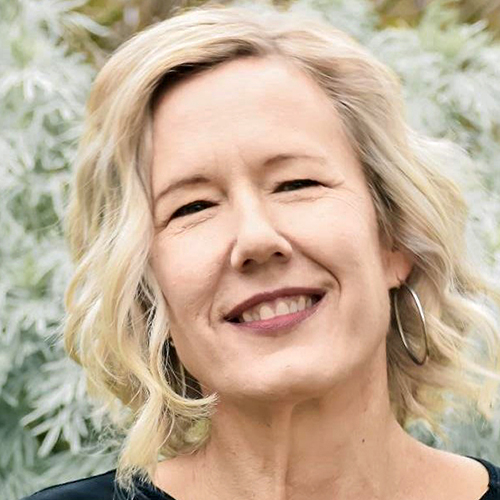

Dr. Gerner has been a Maternity and Pediatric Specialist in private practice for over 17 years with an additional focus on functional infant cranial work. She teaches other professionals to support breastfeeding across the USA and internationally. She is a wife, mother of 3 grown children, and lives in Northern CA with her husband and their 2 rescued dogs.
Topic: Introductions and Establishing the Value of Integration - [View Abstract]
Topic: Nitty Gritty Anatomy: The Cranium, Supporting Structure and the Muscle Layer - [View Abstract]
Topic: Tying It All Together- Consequences of Pathology and Ideal Collaboration - [View Abstract]
Breast is best! We all know that; however, often parent and child struggle so much at the beginning that breastfeeding either isn’t possible or the parent becomes discouraged and gives up. When feeding challenges occur, sometimes the problem is not with the mother’s technique, but rather with the baby himself- barriers within the alignment and tone of his body causing abnormal function and preventing normal breastfeeding. There can also be tethered oral tissues present (tongue or lip ties) causing even more dysfunction. This presentation focuses on: (1) why breastfeeding is best- nutritionally and neurologically; (2) The cause of imbalance- The birth process; (3) the importance of the integrative collaboration of therapists- i.e. the LC, DDS, chiropractor and/or cranial therapist.
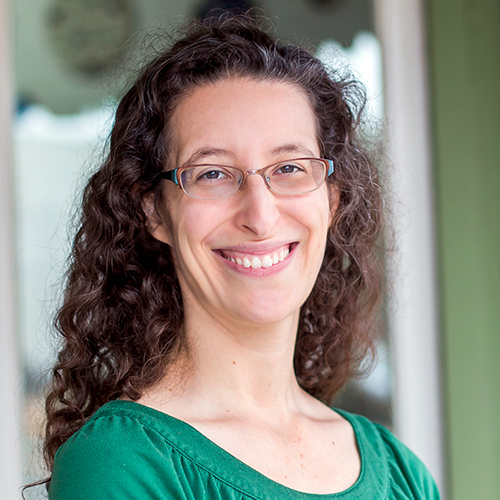

Rebecca began her lactation journey with her undergraduate senior thesis evaluating a breastfeeding education program. After working as a doula and childbirth educator, she decided to pursue a Master’s in Public Health in Maternal and Child Health. There, she was also in the first class of the Mary Rose Tully Training Initiative, a Pathway 2 IBCLC training program. After graduating, she first worked full time as an IBCLC in a large academic hospital. She then became the Director of Lactation Services at a busy freestanding birth center. After making the move to a new state, she went into private practice part-time, and expanded her focus on a longtime passion: providing education for IBCLCs, lactation trainees, and health care providers. She also has special interests in research, support for the LGBTQ+ community, and coalition-building to advance and support IBCLC services.
Many lactation consultants enter practice without ever being fully oriented to lactation-specific note-taking/charting. If you come from a peer counseling background where formal medical charting wasn’t used; a health care professional background that didn’t focus on lactation; or you’re an IBCLC who has been in practice for a while and is looking to level up your note taking, this talk is for you. We will discuss three common challenges: making charting something that improves your patient care (instead of just being a chore); documenting in difficult clinical and legal situations; and balancing your visit time between note-taking and interaction with patients. And we’ll practice with some real-life scenarios to put our skills into practice.
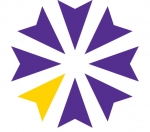

During a time when lactation professionals are facing unprecedented negativity on top of the usual challenges, it’s easy to get drawn into the conflict or to start wondering if what we do makes a difference. How do we lift one another up to maintain a positive focus on using our knowledge and skills to guide families who are feeling scared and confused? How do we set aside our biases to make sure we’re listening to all sides? How do we connect and collaborate with other professions to expand the network of support for new families? This panel discussion focuses on answering those questions and providing steps that can be taken to promote collaboration both within the field of lactation and with other members of the health care team to improve breastfeeding knowledge translation and mobilization. This is your chance to hear from Dr. Amy Brown, Christy Jo Hendricks and Joy MacTavish as they share their thoughts on this hot topic during our panel discussion titled “Lifting up the Lactation Profession”.

View Details / Enroll

Mastering Cross-Cultural Communication Skills: How to Speak and Engage Effectively Across Cultures and Varied Audiences

Kimberly Seals Allers is an award-winning journalist, author and a nationally recognized commentator, consultant and advocate for breastfeeding and infant health. A former writer at FORTUNE and senior editor at Essence magazine, Kimberly’s thoughtful and provocative online commentaries on motherhood and infant health and the intersection of race, class and culture, received over 10 million page views last year.
In addition, Kimberly specializes in issues related to African American motherhood and breastfeeding. In March 2012, she launched Black Breastfeeding 360°, a first of its-kind online multi-media content library on the black breastfeeding experience. She is author of The Mocha Manual to a Fabulous Pregnancy (Amistad/HarperCollins) a hip and informative African American pregnancy guidebook and two other Mocha Manual™ books in the series. She is the founder of MochaManual.com, a pregnancy and parenting destination and blog for African Americans and former editorial director of The Black Maternal Health Project of Women’s eNews.
Kimberly is a graduate of New York University and Columbia University Graduate School of Journalism. A divorced mother of two, she lives in Queens, New York City, with her children and two turtles.
Topic: Raising Our Voice: Breastfeeding Advocacy for Health Care Providers, Professionals, and Volunteers' - [View Abstract]
The word communication comes from the Latin root word meaning “shared” as in a shared language. However, we often find that different practitioners—doctors, nurses, IBCLCs, etc.—each have their own “language”, which is often not the language of mothers and fathers. How do we actually develop a “shared” language? What are the tools needed to better understand the “speak” of mothers in your community? This presentation will outline the challenges of current common communication efforts, highlight best practices from across the U.S. and explain critical cultural nuances of words and communication techniques for mothers and fathers. It will offer a virtual toolkit for understanding the “language” of local parents and how to quickly start speaking that language to improve community engagement outcomes and breastfeeding goals.

Mindful Breastfeeding: How Lactation Professionals Can Support Calm and Connection

Joy MacTavish, MA, IBCLC, RLC is an International Board Certified Lactation Consultant and certified Holistic Sleep Coach focusing on the intersections of infant feeding, sleep, and family well-being. Through her business, Sound Beginnings, she provides compassionate and evidence-based support to families in the greater Seattle area, and virtually everywhere else. She entered the perinatal field in 2007 as birth and postpartum doula, and childbirth and parenting educator. Joy holds a Master of Arts in Cultural Studies, graduate certificate in Gender, Women and Sexuality Studies, and two Bachelors degrees from the University of Washington. She enjoys combining her academic background, analytical skills, and passion for social justice into her personal and professional endeavors. Joy serves as an Advisory Committee Member and guest speaker for the GOLD Lactation Academy. When not working or learning, she can be found homeschooling, building LEGO with her children, or dreaming up her next big adventure.
Topic: Full-Term Breastfeeding/Chestfeeding: Benefits, Considerations, and Ways to Offer Support - [View Abstract]
Topic: Mindful Breastfeeding: How Lactation Professionals Can Support Calm and Connection - [View Abstract]
Topic: Sending Reports: What’s in it for IBCLCs? - [View Abstract]
Topic: Supporting Clients Facing Fertility Treatment - [View Abstract]
Topic: The Intersection Between Lactation, Sleep, and Family Well-Being - [View Abstract]
Topic: Weaning: Supporting Families Stopping Lactation and/or Ending Their Breastfeeding/Chestfeeding Relationship - [View Abstract]
The age-old practice of mindfulness meditation has increased in popularity across the globe over the past four decades and gained traction within the psychological and medical fields. Mindfulness centers on non-judgmental awareness of one’s bodily sensations, thoughts, and emotions in the present moment. It has been scientifically shown to reduce stress, chronic pain, medical and psychological symptoms, and enhance immune function. Mindfulness practices often focus on psychobiological processes, which makes them well suited as in intervention during the perinatal period, and even more specifically breastfeeding. This presentation outlines the ways in which mindfulness can positively impact lactation, during its normal course and especially when there are challenges. As lactation professionals who clinically and holistically support clients, it is beneficial to be able to share mindfulness strategies that can serve as a bridge between the mental, emotional, and physiological realms. Through a greater understanding of the practical aspects of mindfulness, gentle interventions can be incorporated into each feeding session. By supporting calm and connection within the parent and between the parent and infant, the experience of breastfeeding can be enhanced.

View Details / Enroll

View Details / Enroll
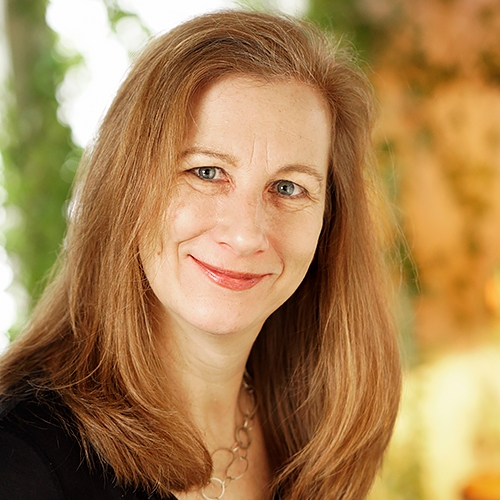
Moving from Evidence to Practice: Knowledge Translation and Breastfeeding Support

Sonia Semenic is an Associate Professor at the Ingram School of Nursing, McGill University (Montreal, Quebec, Canada) and a Nurse Scientist at the McGill University Health Center. After many years of experience as an IBCLC and Clinical Nurse Specialist in maternal-child health, Sonia completed a PhD in Nursing and postdoctoral training in community health. Her research aims to better understand the process of knowledge translation (KT) in perinatal health, with a particular focus on the implementation of evidence-based practices to protect, promote and support breastfeeding. She currently co-leads the Knowledge Translation Platform for the Quebec Nursing Intervention Research Network, and teaches graduate courses on knowledge translation in nursing practice.
Topic: Moving from Evidence to Practice: Knowledge Translation and Breastfeeding Support - [View Abstract]
Despite irrefutable research evidence for the benefits of breastfeeding, less than 37% of infants worldwide meet WHO targets for optimal breastfeeding. Persistently low breastfeeding rates are due in part due to poor uptake of breastfeeding best-practice guidelines, such as the Baby-Friendly Hospital Initiative. The growing field of knowledge translation in healthcare reveals that it takes from 8-30 years for research findings to be adopted into clinical practice, and that up to 45% of patients don’t receive evidence-based healthcare. This presentation aims to help those providing lactation support to better understand the complexity of factors influencing the use of evidence in practice, as well as what can be done to facilitate the uptake of best practice guidelines to protect, promote and support breastfeeding. Whether or not care providers follow evidence-based practices is influenced by the nature of the evidence (e.g., perceived relevance of the evidence), characteristics of the care providers (e.g., motivations to change practice) as well as characteristics of the care environment (e.g., leadership support for change). Successful strategies for supporting practice change are tailored to local barriers and facilitators to evidence use, and can be informed by the growing number of theoretical models and frameworks for KT in healthcare.

View Details / Enroll

View Details / Enroll





